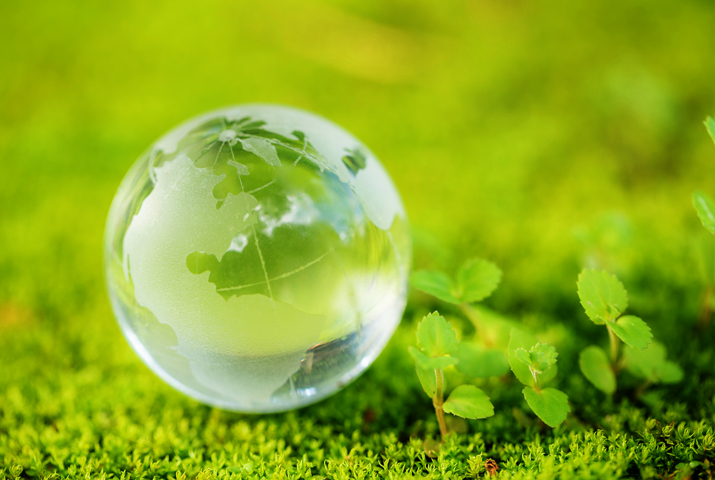- Home
- Blog
- Material & Life
- PHOENIX Materialize Your Vision for Sustainable Future
PHOENIX Materialize Your Vision for Sustainable Future
2023-01-05

Image by jcomp on Freepik
Have you ever counted how many essentials in your daily life are made from plastics? With numerous good features such as light weight and shapeable, plastics have been used in various applications, from packaging to transport, from construction to medical. Plastics’ pivotal role in our daily lives is unquestionable.
As people use a lot of plastic products, plastic waste has become a global challenge. But we always believe that there will be a balance between economic growth and cost to nature. What can the plastic industry do for our planet? Bioplastic is one of the solutions.
According to the European Commission and European Bioplastic, ‘bioplastics’ is an umbrella term for a large family of different plastics. They are mainly divided into two groups, bio-based plastics (BBP) and biodegradable plastics (BDP).
Bio-based plastics are fully or partially based on biomass, renewable resources such as plants. Biodegradable plastics decay and disintegrate into substances that are not harmful to the environment, in certain conditions at their end of life.
Bioplastics are bio-based, biodegradable, or both at the same time. Bio-based plastics are not necessarily biodegradable. Biodegradable plastics don’t need to be made from renewable raw materials, but can be fully or partially made from fossils.
● Bio-based, non-biodegradable bioplastics
● Bio-based, biodegradable bioplastics
● Fossil-based, biodegradable bioplastics
The use of biomass for bio-based plastics not only can save natural fossil resources for future generations, but also reduce greenhouse gas emissions.
Established in 2005, Phon Tech has focused on Thermoplastic Elastomers TPE research and formulation for decades. Compared to other plastics, such as PVC, TPEs are eco-friendly. They don’t contain phthalates and nonylphenol that will cause environmental pollution. And they are recyclable that can reduce mass plastic wastes. However, Phon Tech Research and Development team keeps thinking about what we can do more for our planet. Eventually, PHOENIX 19 Series thermoplastic elastomers (TPEs) were developed.
PHOENIX 19 Series thermoplastic elastomers (TPEs) belong to bio-based, non-biodegradable bioplastics. It is a series partly derived from natural feedstocks, using fewer fossil sources. Just like fully fossil based TPEs, it has good adhesion to PP. Its recyclable time is equivalent to normal TPEs. Also, it has the same process ability and properties as conventional TPEs. The features made the PHOENIX 19 Series product as ideal alternative to common TPEs.
Then how do we acknowledge a plastic is bio-based? Currently there are several third-party certified eco-labeling programs and bio-based product initiatives worldwide to test bio-based content of plastics, such as ASTM D6866 and ISO 16620.
PHOENIX 19 Series TPEs are tested with ASTM D6866 test methods, which use radiocarbon (C14) for determining the bio-based content. The test results indicate the percentage of carbon from natural sources versus petrochemical sources. PHOENIX 19 Series TPEs now have bio content up to over 50%.
Environmental protection lies in the heart of Phon Tech’s 2023 annual goals. We are ready to be part of the global green supply chain. Working with insightful brand owners and product designers, we believe that we can contribute to a more sustainable future.
For further information of PHOENIX 19 Series TPEs, please visit our product page.
PHOENIX™ Bio-based Thermoplastic Elastomers (TPEs)
Have you ever counted how many essentials in your daily life are made from plastics? With numerous good features such as light weight and shapeable, plastics have been used in various applications, from packaging to transport, from construction to medical. Plastics’ pivotal role in our daily lives is unquestionable.
As people use a lot of plastic products, plastic waste has become a global challenge. But we always believe that there will be a balance between economic growth and cost to nature. What can the plastic industry do for our planet? Bioplastic is one of the solutions.
According to the European Commission and European Bioplastic, ‘bioplastics’ is an umbrella term for a large family of different plastics. They are mainly divided into two groups, bio-based plastics (BBP) and biodegradable plastics (BDP).
Bio-based plastics are fully or partially based on biomass, renewable resources such as plants. Biodegradable plastics decay and disintegrate into substances that are not harmful to the environment, in certain conditions at their end of life.
Bioplastics are bio-based, biodegradable, or both at the same time. Bio-based plastics are not necessarily biodegradable. Biodegradable plastics don’t need to be made from renewable raw materials, but can be fully or partially made from fossils.
● Bio-based, non-biodegradable bioplastics
● Bio-based, biodegradable bioplastics
● Fossil-based, biodegradable bioplastics
The use of biomass for bio-based plastics not only can save natural fossil resources for future generations, but also reduce greenhouse gas emissions.
PHOENIX 19 Series - Your 'Natural' Choice of Bio-based TPEs
Established in 2005, Phon Tech has focused on Thermoplastic Elastomers TPE research and formulation for decades. Compared to other plastics, such as PVC, TPEs are eco-friendly. They don’t contain phthalates and nonylphenol that will cause environmental pollution. And they are recyclable that can reduce mass plastic wastes. However, Phon Tech Research and Development team keeps thinking about what we can do more for our planet. Eventually, PHOENIX 19 Series thermoplastic elastomers (TPEs) were developed.
PHOENIX 19 Series thermoplastic elastomers (TPEs) belong to bio-based, non-biodegradable bioplastics. It is a series partly derived from natural feedstocks, using fewer fossil sources. Just like fully fossil based TPEs, it has good adhesion to PP. Its recyclable time is equivalent to normal TPEs. Also, it has the same process ability and properties as conventional TPEs. The features made the PHOENIX 19 Series product as ideal alternative to common TPEs.
Then how do we acknowledge a plastic is bio-based? Currently there are several third-party certified eco-labeling programs and bio-based product initiatives worldwide to test bio-based content of plastics, such as ASTM D6866 and ISO 16620.
PHOENIX 19 Series TPEs are tested with ASTM D6866 test methods, which use radiocarbon (C14) for determining the bio-based content. The test results indicate the percentage of carbon from natural sources versus petrochemical sources. PHOENIX 19 Series TPEs now have bio content up to over 50%.
Environmental protection lies in the heart of Phon Tech’s 2023 annual goals. We are ready to be part of the global green supply chain. Working with insightful brand owners and product designers, we believe that we can contribute to a more sustainable future.
For further information of PHOENIX 19 Series TPEs, please visit our product page.
PHOENIX™ Bio-based Thermoplastic Elastomers (TPEs)
Article Classification
Recent Articles
- TPE to Polyamide (PA) Bonding Guide | PHOENIX TPE
- TPE Menstrual Cups: The Future of Sustainable Period Care
- Elevate your cosmetic packaging with PHOENIX TPEs
- Luggage wheels with PHOENIX™ TPE can take you further
- Let our Static Dissipative TPE & Conductive TPE enrich your product design
- Why TPE is the perfect material for your Fish Bait
- TPEs: Ideal Materials for Syringe Gasket Applications
- How does TPEs help you relax from the daily
- Understanding GHG Emission Quantification and Verification
- PHOENIX™ TPEs care about you, because you are our baby.
- GRS & RCS: Certification For Recycled Materials
- PHOENIX Materialize Your Vision for Sustainable Future
- PHOENIX™ Antimicrobial TPEs help you combat bacteria
- To fast display yourself on the PHOENIX™ TPEs material-made product.
- Learn TPE from daily dental care
- TPE - The Small but Important Piece in Bottle Caps
- Life Matters: High-quality PHOENIX™ TPEs for Medical Applications
- The crucial elements in human life
- The indispensable utensils in the KITCHEN
- The recyclability of PHOENIX™ TPEs
- A Peek Into A Ballerina's Dance Bag
- How to discover the Phoenix™ at 2021 Tour De France!?
- TPE: Enjoy cycling with comfort grips
- Your great company during Covid-19 pandemic!!
- TPE: Why Does It Matter To The Hospital Bed Caster
- Compression Set of Thermoplastic Elastomers

